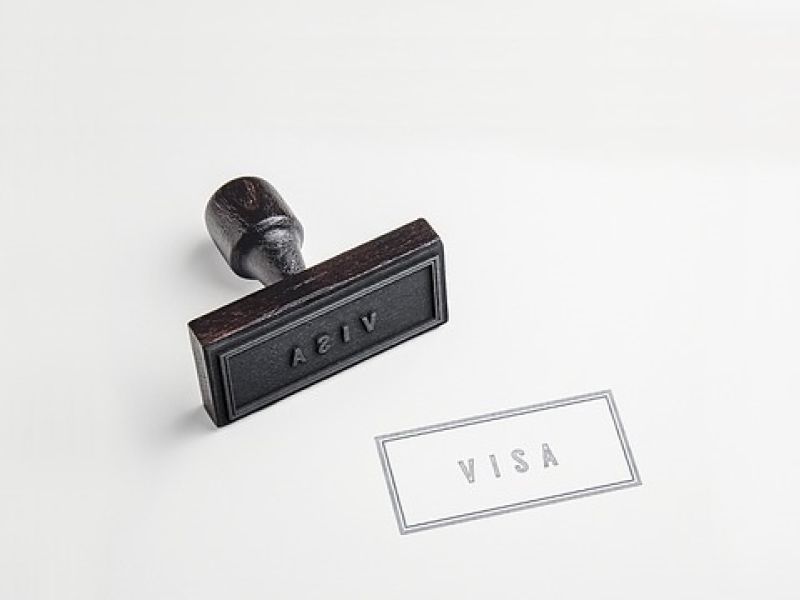So, you’re thinking of relocating your business to sunnier climes? Perhaps you need a change of pace; perhaps your market is elsewhere and you want to be closer to them; or perhaps it’s just Brexit? Whatever the rationale, you’re considering the feasibility, the benefits and the drawbacks of picking up everything you’ve built, and plonking it down in a brand new patch of turf.
While it’s not as easy as just filling in a couple of forms and shipping everything out, there are plenty of ways to move your business abroad, and plenty of advantages which should outweigh the difficulties. It pays to know what you’re getting yourself into though, and to do a bit of research beforehand. Here are the major reasons you might settle on moving your business abroad, and a few tips if you decide to follow through.
Reasons to relocate your business
At present, Brexit is very much in the zeitgeist for businesses in the UK, with many currently preparing for a January deadline which may or may not come to pass, depending on an early election. This brings with it expenses which were likely incurred for the previous deadline in July, and perhaps another one or two before that. At some point, it becomes tempting for some businesses to simply pack in their UK business and move somewhere where the business climate is more stable.
Related article: The best country to start a business in Europe
Many of the problems associated with Brexit, however, are also problems which are commonly experienced elsewhere. The potential labour shortage following the end of free movement is a well-worn issue around the world, particularly in countries such as the U.S. which are experiencing extremely low levels of unemployment. And cost issues relating to the weakness of the Pound Sterling are mirrored by the relative weakness of the Euro against the Dollar.
Other problems may be more area specific however, and relocating your business could also be a means of creating opportunities. If a hub for a certain industry or niche has sprung up in a city or country, then being closer to this could be vital in terms of access to talent, funding and manufacturing bases. Rent and other costs are also common factors which lead people to move their businesses abroad, seeking the advantages of a city (connectivity, talent etc) but without the exorbitant rents of somewhere like London.
Major challenges when moving your business
If you do decide to move your business abroad, there are a number of things you’ll need to think about. Far from just being able to relocate and continue operating as you are, it’s likely that you’ll have to go through the process of setting up your business from scratch, albeit with the benefit of your existing resources, relationships and clients. Here are the main things you’ll have to consider, and how easy or otherwise they are likely to be.
Picking a name
With a bit of luck, this step should be the most straightforward of them all. If you’re moving to a country with a different first language than the one you’ve left, it’s likely that your current name will be available. Choosing it should be as simple as checking the local register and settling on your chosen name during the formation process.
Related article: How to pay cross-border VAT in the EU
However, there’s also the chance that you may not be able to use this name due to local restrictions, or that, you may have to change your business name slightly due to naming conventions. One example of this is in Germany, where most businesses must include the suffix denoting their business structure (e.g. GmbH) within their official business name.
Something else you may need to consider is what your business name conveys locally. Some words can have ulterior meanings in different languages, either when translated directly or as homonyms (words which sound like other words). The last thing you want is your seemingly innocent-sounding brand name to sound like a particularly filthy or inappropriate word!
Finding premises
There are likely to be a number of estate agents or other firms within your country of origin who will be deal in properties abroad. The easiest way however is to deal locally, once you have earmarked the country and region you intend to move to. Your choice of location is likely to be determined by many factors, but the mains ones may include access to labour, resources, and strong transport and internet infrastructure.
Related article: Start A Business In Ireland In 8 Steps
One approach may simply be to pick some ideal areas of your chosen town or city and have a wander around, looking for any empty premises or signage which indicates that a property is available for sale or let. Alternatively, you may need to find someone who can help you to deal with local estate agents, or even attempt to conduct the process online with a little help from Google Translate.
Navigating the formation process
 You can get an idea of how easy it is to start a business in various countries from the World Bank’s Doing Business rankings. This annual report rates each country in the world according to a variety of metrics which affect how easy it is to conduct business there, including paying taxes, registering property and access to utilities.
You can get an idea of how easy it is to start a business in various countries from the World Bank’s Doing Business rankings. This annual report rates each country in the world according to a variety of metrics which affect how easy it is to conduct business there, including paying taxes, registering property and access to utilities.
Related article: What is the best startup visa scheme in Europe?
One of the most valuable attributes is the ‘Starting a Business’ metric, which ranks every nation on the relative speed and efficiency of its startup process. By viewing the report for each country, you can also see an overview of the process of starting a business there, including a brief guide on the steps you’ll need to take. (For more in-depth information, you can visit the country pages on our website, or read our guides to starting a business in France and Ireland at the end of this article.)
Starting your business up in another country is only the first step in a long journey, however, so a more challenging startup process should not be seen as too intimidating. Indeed, there are also a number of company formation experts who can relieve the hassle of the formation process, and allow you to focus on the more pressing challenges of operating in a new environment.
Adapting to the market
The process of doing business in your new country is also something that’s likely to change. While it may be possible to act exactly as you always have done, moving your business abroad often requires a change of mindset, and some deference to local customs. If you want to successfully hire and work with people locally, some research may be needed.
Related article: How to set up a VAT number in a foreign country for ecommerce entrepreneurs
Articles about cultural faux pas and things to avoid in that country are a good starting point, and will stop you from killing any deals stone-dead. Other aspects may be baked into law, such as a living wage or other protections for workers. Yet more may only be gained through experience, or by hiring someone locally who can advise and oversee your early efforts.
These adaptations can be the most challenging part of moving your business abroad, as you deal with systems which may be less efficient that you’re used to, and reliant on knowing the right person or greasing a few wheels to get things done. Ultimately, the important thing is to accept the things that can’t change, and work to ingratiate yourself with the locals. Investing and hiring locally will be a great start, and will help you to feel more like a local business.
Branches and subsidiaries
One alternative to moving your business abroad is to instead set up a branch in another country. A branch is not a legally distinct entity from your existing business, but still allows you to establish a presence outside of the country. This means that your existing business is liable for the branch’s activities, with only local activities being liable to local corporate income tax payments.
Related article: How to open a branch of your business in France the easy way
A branch allows you to dip your toe in the water of a foreign move, giving you physical access to resources available elsewhere without having to move all of your assets, learn a new culture and disrupt your operations. However, not being a legally distinct business also means you won’t be able to take advantage of improved economic or tax conditions in that country, and could in some cases lead to double taxation.
You might also consider opening a subsidiary, a legally distinct entity which carries the opposite benefits and drawbacks to a branch. While this represents more of a commitment, it also allows you to extend your business abroad in a more official manner without dissolving your existing business. Additionally, subsidiaries tend to have more credibility than branches, and find it easier to secure investment and form partnerships.
Euro Start Entreprises have written extensively about branches in particular, and have an immense amount of experience in helping to set up branches abroad. Over our years of experience in the field, we have established a network of offices and agents all of the globe, enabling us to provide not only company formation services but also accountants, tax planning, bank accounts, business visas, serviced or virtual offices and foreign VAT services. For more information, just click on the links, and either call us directly on 0033 (0)1 53 57 49 10 or email us from our contact page.







